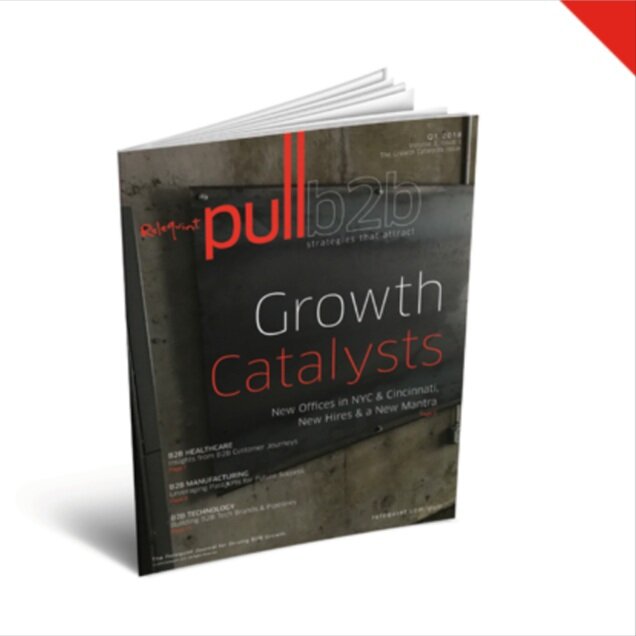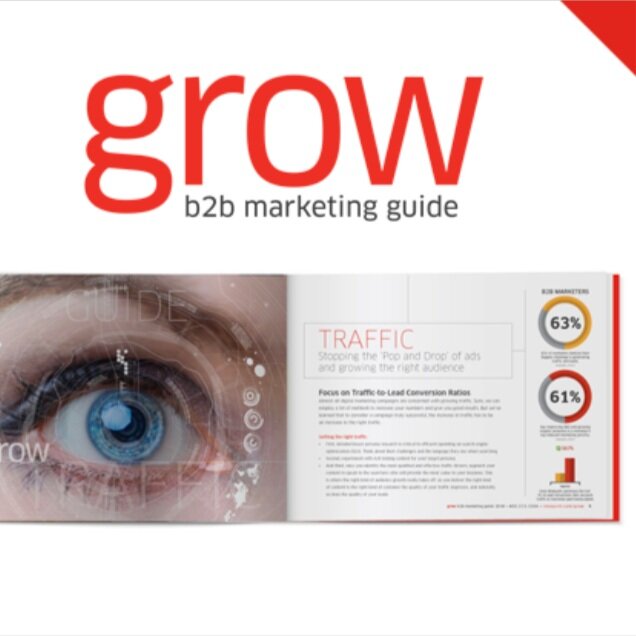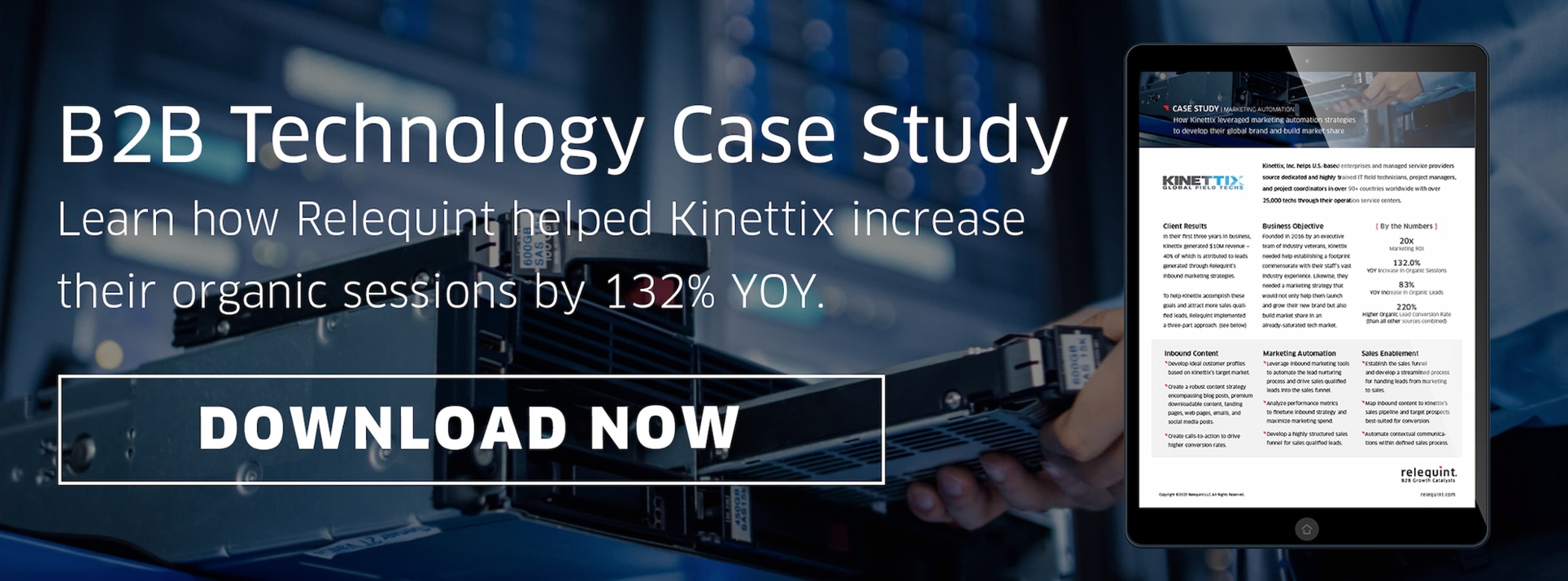 For B2B technology companies, automation can be the key to a more successful marketing strategy. For example, marketing automation can bring processes such as lead nurturing and lead scoring to scale. It can also help you ensure that your marketing and sales teams’ efforts are aligned.
For B2B technology companies, automation can be the key to a more successful marketing strategy. For example, marketing automation can bring processes such as lead nurturing and lead scoring to scale. It can also help you ensure that your marketing and sales teams’ efforts are aligned.
While all of these traits can make your marketing strategy more robust, one of the strongest benefits of B2B marketing automation is how it can help to increase your return on investment (ROI). Below we will explore how companies can measure ROI with automation, how automation increases ROI, and how to add value through marketing automation.
How to Measure the ROI of Marketing Automation
One of the easiest ways to measure ROI with automation is by examining the conversion rate — which is the primary metric used to determine the return on investment of most marketing efforts.
To determine how much automation has improved ROI, simply compare the historical conversion rate with the conversion rate after implementation of the automation strategy. If your company has had a higher conversion rate since the automation was implemented, that means that the automation has successfully generated a greater number of high-quality leads.
If you want to see whether marketing automation translates into a return, then you will need to identify the revenue generated from post-implementation conversions and compare it to the costs associated with the automation. This task will allow you to see whether the strategy resulted in a profit or not. The good news is that automation makes it easier to track which customers interacted with your website and eventually made a purchase based on your marketing efforts.
How Automation Can Increase Your Company's ROI
The simple fact is that marketing automation results in a return on investment by creating more conversions and generating more revenue for the company. But, you may be wondering how automation can help to improve these conversion rates. Here are four ways.
1. It improves your relationship with customers.
Marketing automation software has features that are designed to provide personalized experiences for both prospects and current customers. As a result, your contacts are more likely to resonate with your marketing messages. Your sales team will also have access to a wealth of information on each individual, allowing them to have more meaningful conversations as well as quickly identify who is ready to buy.
2. It produces targeted communications.
When rolling out an email campaign, the last thing you want is to be marked as spam. Fortunately, marketing automation software analyzes email data and can preserve the deliverability of future campaigns. You can also use this data to analyze contacts’ behavior and time zone, so you’re sending the right message at the right time. Finally, marketing automation allows you to schedule emails in advance or even create evergreen campaigns that run automatically, so you can focus on other areas.
3. It allows for better marketing decisions.
As previously mentioned, marketing automation software provides a better way to track the source of every new lead and contact. In turn, you will be better able to measure the performance of your various marketing channels and make necessary adjustments to your strategy, if needed.
4. It saves time.
Time savings can not only free employees up to work in other needed areas of marketing, but it can also lower the overall cost of your marketing efforts — resulting in a better ROI.
Add Value Through the Use of Marketing Automation
As with any company, looking for cost-effective ways to add value is a goal that can be difficult to obtain through traditional marketing methods. But by using automation practices, you can add value without requiring a significant amount of cost or time. Some ways that marketing automation can add value to B2B technology companies, in particular, include:
- Seamless Lead Nurturing: Converting a prospect to a customer is a continuous process that requires frequent engagement. However, neither marketing nor sales have time to follow up with everyone who downloads an asset every day. Marketing automation is designed to dramatically increase leads through “hands-off” drip campaigns that guide the customer through their decision-making process — without driving up your acquisition costs.
- Increased Sale Conversions: By leveraging marketing automation software, you will be able to easily track a prospect's behavior as well as identify their interests and pain points. You can then tailor your marketing strategy to align with these insights. You will also be able to use things like lead scoring to rank prospects in terms of their readiness to buy.
- Improved Customer Retention: All too often, marketing campaigns overlook the role of customer retention and solely focus on gaining customers. With marketing automation, you will not only help gain new customers but also retain your current ones through enhancement services and up-selling efforts.
Marketing automation can provide B2B technology companies a significant ROI which, in turn, can lower customer acquisition costs and increase revenue. Interested in learning more about how marketing automation can improve your company's ROI? Download our B2B technology case study to see marketing automation in action.![]()







 By
By 
